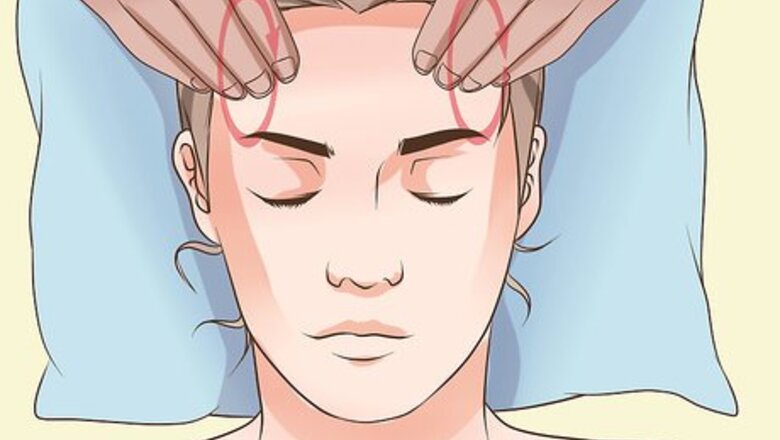
views
Relaxing Your Muscles
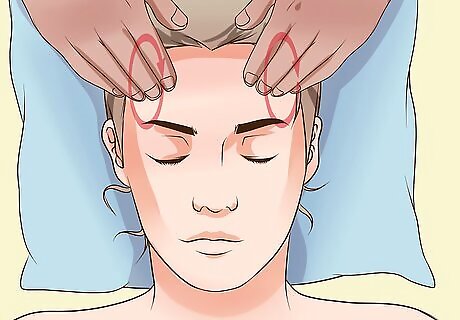
Get a massage. Tension causes an actual physical change in the affected muscles and a massage can help remove it so that your muscles feels relaxed. A professional masseuse can feel the knots and tension in your muscles and massage them out. Some studies show that massage may release and lengthen tense muscles. There are many types of massage available, but Swedish massage and deep-tissue massage are effective at alleviating tension in your entire body. You can locate a qualified massage therapists either online or through a doctor’s recommendation. If you can’t get to a professional massage therapist, try self-massage. Rubbing your face or even just massaging your ears will relieve tension. Try using a massage gun to target your muscles.
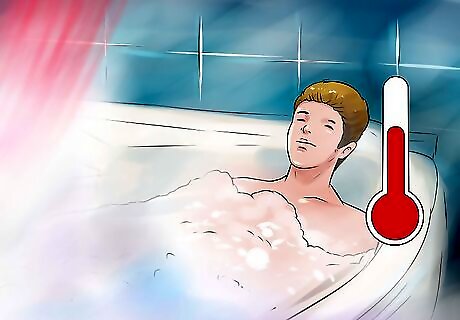
Use heat therapy on tense muscles. Using heat on tense muscles not only can relax the contracting muscle and you, but it will also help alleviate the pain. From heating pads to warm baths, heat treatments can help get rid of tension. Taking a warm shower or bath will relax you and help with the pain of a muscle cramp. Fill a hot water bottle or get a heating pad and place it on the your tense muscles. Over the counter heat rubs may also help alleviate tension and relax muscle spasms.
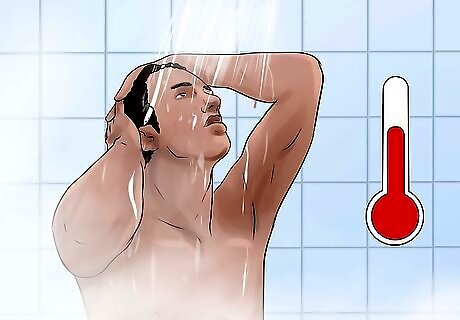
Take a warm bath. Draw yourself a warm bath when you feel tension. Warm water will soothe tense muscles and can instantly relieve tension and relax you. Make sure that the water is between 36 and 40 degrees Celsius so that you don’t burn your skin. You can use a thermometer to check the temperatures. A whirlpool tub can help relieve tension because the jets will massage your muscles. Epsom salts can have a sedative effect on you and help relieve muscle tension further. If you don’t have a bath, consider using the shower or a steam room.
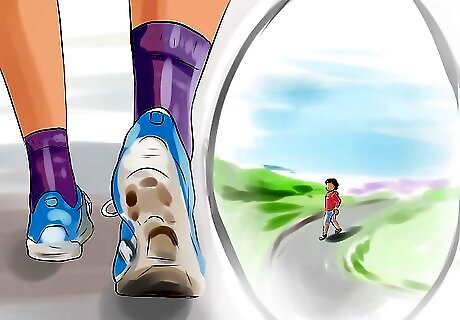
Go for a walk. Going for an easy walk not only can stretch out your muscles through motion, but it will also relieve tension-causing stress. Make sure to keep your exercise gentle so that you don’t cause your muscles to tense up further. Only exercise if you are able to and don’t push yourself. This may only be possible after some light stretching. Take long strides and gently swing your arms to get the full stretching benefits. Walk at a comfortable pace to stretch out your muscles optimally. Any amount of time you can walk will help work your muscles and relieve tension. Aim for at least ten minutes and walk for a longer time if you want and are able. If you can, walk in an attractive location in nature such as the woods, parks, gardens, or along waterways. Environments like these can greatly reduce tension.
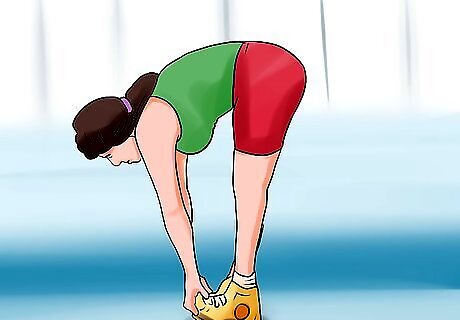
Try gentle stretching exercises. Bunched up muscles cause tension and stretching exercises can help alleviate tension and break up knots in your muscles. Doing gentle stretches will help ensure that you don't injure yourself or cause further tension. For tension in your legs, try bending over and touching your toes. If this isn't possible, you can sit on the floor and reach toward your toes. To relieve tension in your lower back, simply lay on the floor and pull your legs towards your chest. To relieve tension in your chest and sides, put your hands behind your head, open your elbows and then bend to each side and slightly backwards. The shoulders and neck hold most of the body's tension and stretching these areas lightly may immediately relieve your tension. To stretch your neck, tilt your head to the side and lightly pull it with your hand. To stretch the back of your neck, put your chin to your chest and gently pull with your hands behind your head. You can also stretch your shoulders by gently pulling each arm to one side or pulling your arms down behind you. Basic stretches that you would use to avoid injury will help to relieve tension and knots in your muscles.
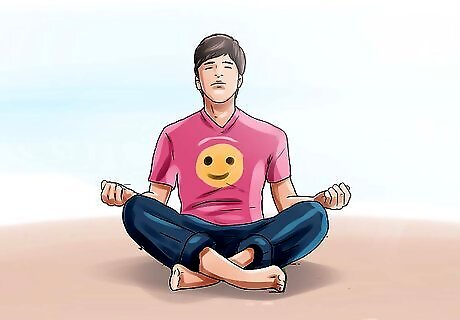
Try practicing gentle yoga. Yoga will also help stretch out and lengthen muscles, but it can also calm the body and bind. Restorative and yin yoga are specifically practiced to help stretch out muscles. Yoga and other exercise will encourage proper posture and improve posture, both of which can help relieve muscle tension. If you're trying yoga for the first time, make sure to start with beginner classes so that you learn proper alignment and get the most stretching benefit.
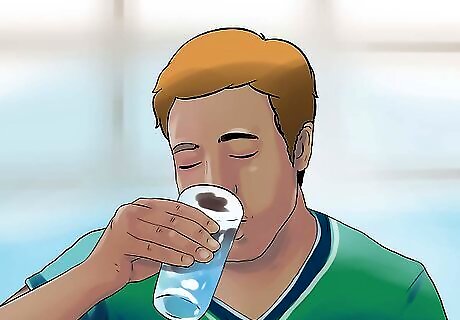
Make sure you’re hydrated. Although studies have not shown a connection between dehydration and tension, there is some evidence that not consuming enough water does contribute to involuntary muscle spasms. Making sure that you’re properly hydrated throughout the day may help you avoid muscle spasms and related tension. Water will keep you hydrated. If you prefer sports drinks or juices, make sure to drink them in conjunction with some water throughout the course of the day.
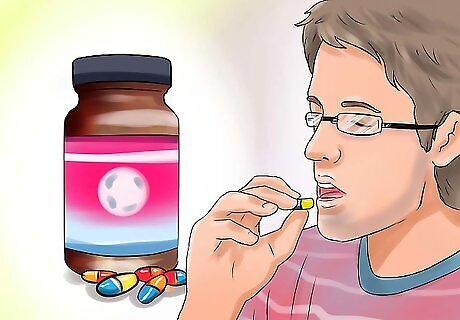
Take a pain reliever. If other methods don’t help your tension or you have lingering pain, take an over the counter medication to help alleviate the pain. If the pain continues for a longer period of time, though, consult your doctor to rule out a medical condition. Take ibuprofen or and NSAID (Non-Steroidal Anti-Inflammatory Drugs) to help with the inflammation that may be causing your tension. Pain relievers are also good for relieving the headaches that often accompany tension.
Relieving and Avoiding Stress
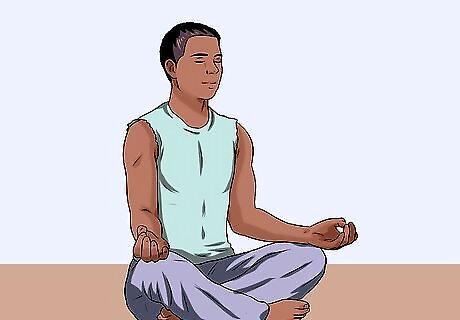
Practice meditation. Meditation practices are traditionally buddhist techniques that can help develop concentration, clarity, emotional positivity, and a calm acceptance of the true nature of things. Do about 15-30 minutes of centering meditation (such as mindfulness or kindness and compassion meditation) daily to relax your muscles, relieve your stress, and as a result, remove the tension from your body. Try either kneeling, laying down on your back, or sitting with your legs crossed in front of you while you meditate. There are many different ways you can position your hands while meditating, and each are thought to have different effects on the body. Some of these so-called mudras include: Gyan Budhi Shuni Prana Dhyana Surya
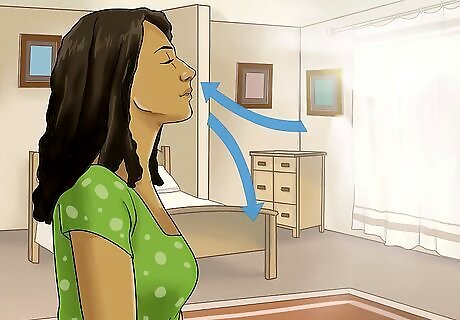
Do breathing exercises. Breathing exercises can help to calm down an anxious or stressed mind and are particularly useful for releasing tension to enable sleep. Try the 4-7-8 exercise by pressing your tongue against the back of your teeth, inhaling for 4 seconds, holding your breath for 7 seconds, and exhaling for 8. Then, repeat this 4 more times. Try alternate nostril breathing by sitting with your back straight and closing your eyes. Close your left nostril with your right ring finger and inhale. Then, close off your right nostril with your thumb as you exhale. Make sure to take deep belly breaths when you practice yoga. This will naturally invigorate you and help dissolve tension and tightness in your muscles.
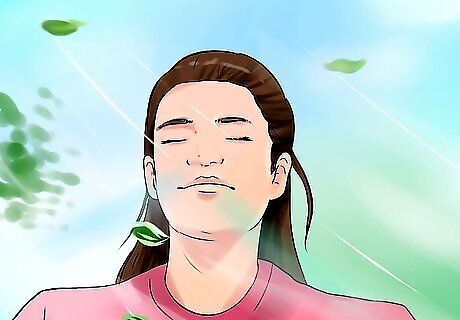
Avoid stressful situations. Stress is one of the most significant sources of tension. Avoiding stressful situations whenever possible will also help ensure that you don’t have tension in your body. Organizing your day and allowing time to relax will help you relieve and avoid unnecessary stress. Step back from any stressful situation if you can. If you cannot, try taking a deep breath and not reacting immediately to avoid having your feelings and tension rise unnecessarily.
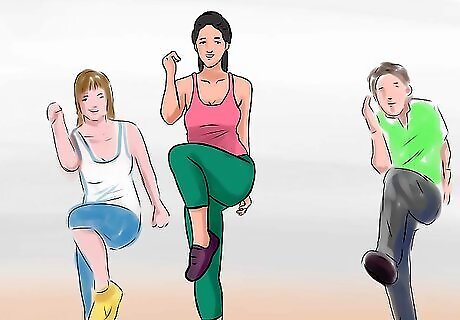
Exercise regularly. Regular exercise is an important part of staying healthy and it will also help relieve tension-causing stress. Try to get some form of exercise every day to help avoid and alleviate tension. Even a small amount of exercise is good and can help relieve stress. For example, a ten minute walk will relax and refresh you and will also lightly stretch your muscles. Exercise produces endorphins that will improve your mood and help you sleep, both of which can contribute to feelings of tension.
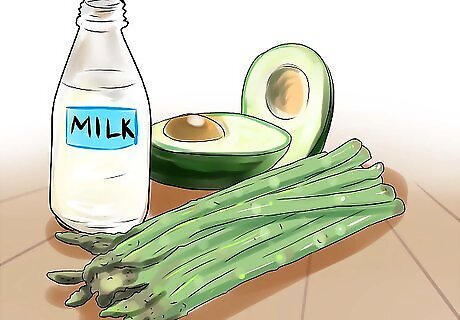
Eat properly. Bad nutrition exacerbates stress and tension. Eating healthy foods will not only help your overall well-being, but also combat stress and tension. Chewing can help you relieve tension because the motion is a natural relaxant. Foods like asparagus, which has the mood-enhancing nutrient folic acid, can help alleviate stress. Foods high in Vitamin B such as avocados also help relieve stress. A glass of warm milk can help insomnia and anxiety. Its proteins lower blood pressure while the potassium can help alleviate muscle spasms caused by tension.
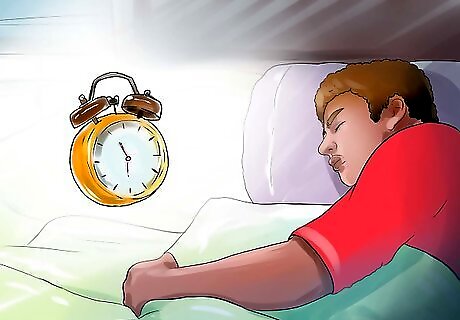
Get enough sleep. Every person needs sleep in order to maintain health and well-being, but it will also help your body relax and process stress. Make it a priority to get 7-9 hours of sleep every night to help you avoid stress and tension. Increased stress and tension are one of the negative consequences of insufficient sleep. Make sure you get enough sleep every night so that you don’t exacerbate any stress or tension in your body. Short naps of 20-30 minutes can also help relieve stress.




















Comments
0 comment